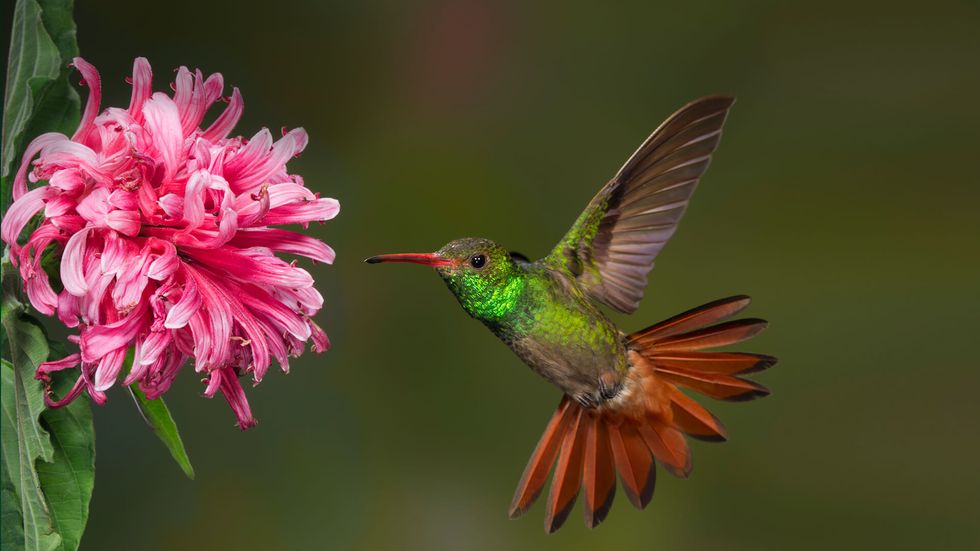The Bloom & The Hummingbird
In a Garden Soft & Green
Lay the brightest bloom I e’er have see
Upon a bed of moss and ferns
Her beauty so plain to see
Round the garden did I trod
Wandering hither, thither and in awe
Of an emerald hummingbird
The smallest I ever saw
He flitted and he fluttered by
Sampling all the roses
But when he came to the bloom I spied
He was all but stopped, frozen
He inched e’er closer to that heavenly bloom
A pilgrim in the face of the Spirit’s Loom
Quaking, quivering, tenderly sipped
From the mouth of the flower
As from a woman’s lips
There in the garden he did stay,
Leaving only at the close of day
To rest his weary wings and heart
To sup of golden nectar at next day’s start
Each day I came to the Garden there,
Watching the green gilded bird
And Behold, the bloom sprang everywhere
A flower lasting as the Word
Then one day, I looked to find
In peaceful repose, where I stood
That poor, poor, hummingbird
Far from his homey wood
So ‘neath the bloom, I laid to rest
The Bird, that gave to his flower the best
No even so, no flight for nectar
He still is there, in spirit, protector
And never once, in snow or other weather
Did that precious die or wither
Till this day, it still is there
So too, must I go, a hummingbird to his flower
This poem was inspired by one of my grandmother's favorite birds, the hummingbird. As a harbinger of spring, the hummingbird is always the first to feed on the nectar of new spring blooms. This is very much like our relationship to Christ, in that he was the first to Love us and give us life. Like Jesus, this hummingbird gave tenderly everything of himself until he died, and in his death the hummingbird preserved the flower, as Christ preserves us in his Grace from the death of Sin. I also think of this poem as a model for how we should love people, giving all that we have now and forever to Love one another, so that we may be like Christ in everything that we do. During this season of Advent, may the imagery of this poem remind us of the goodness of Christ's love that even in death protects us, and preserves us from perishing.























